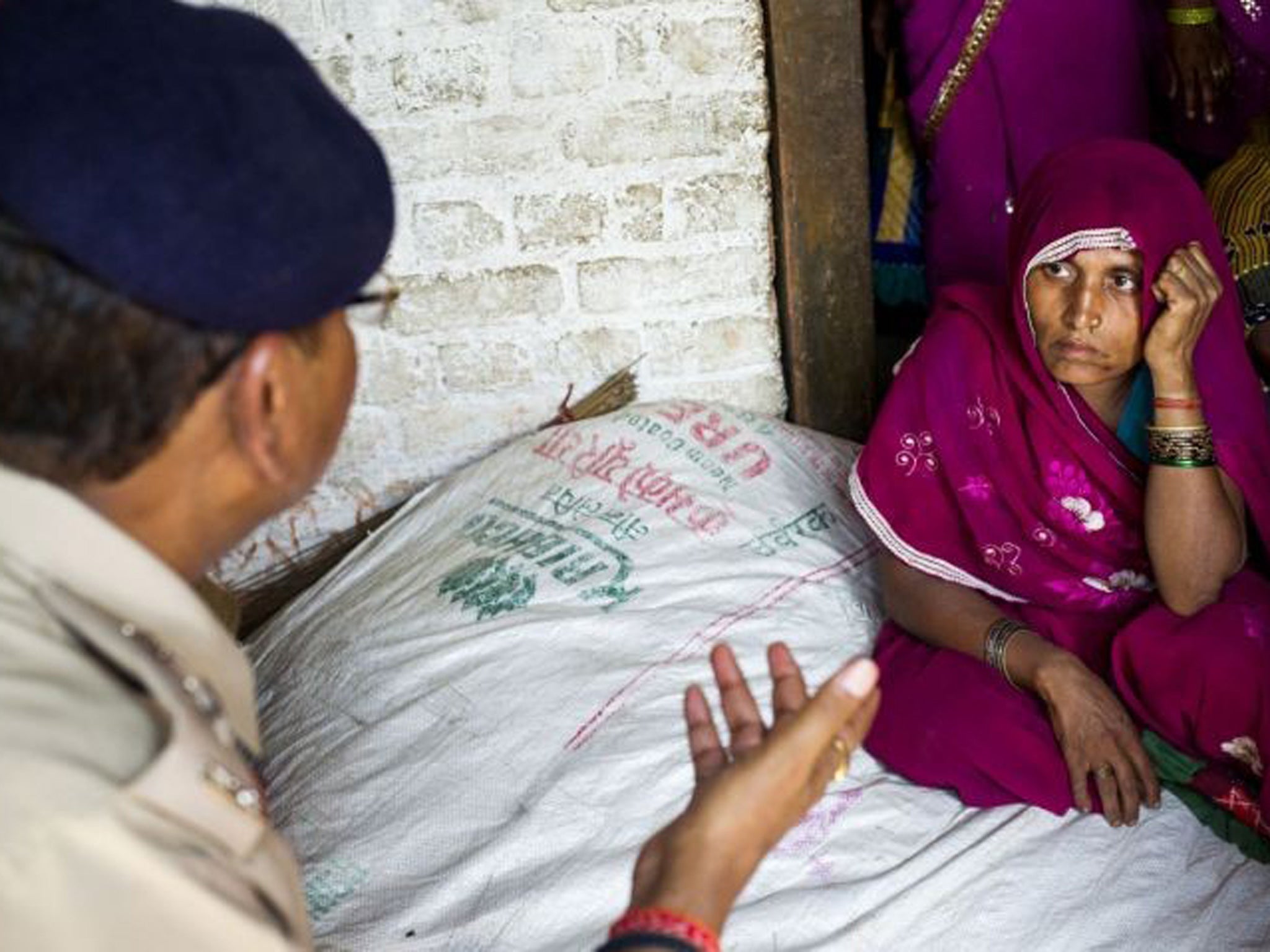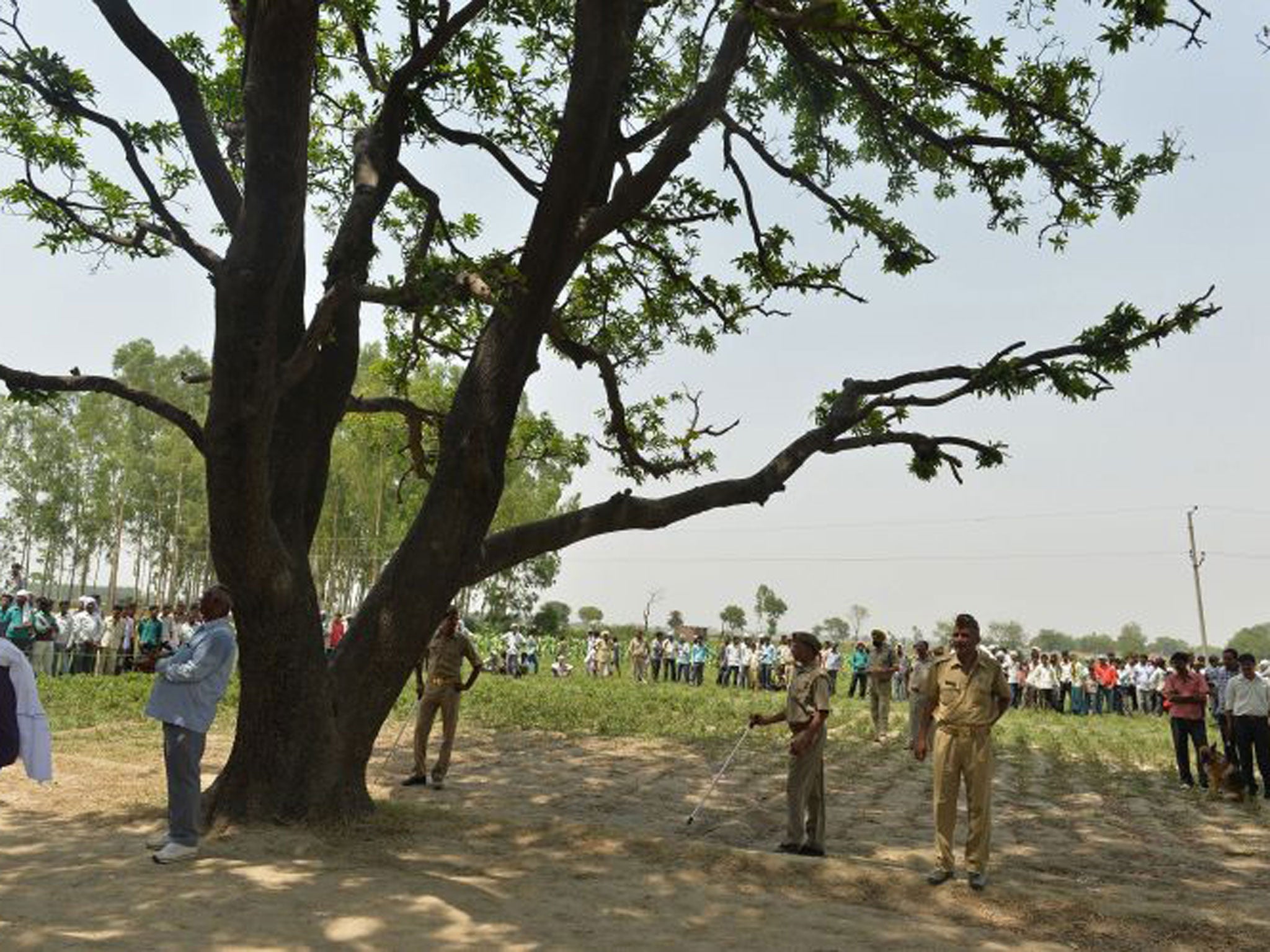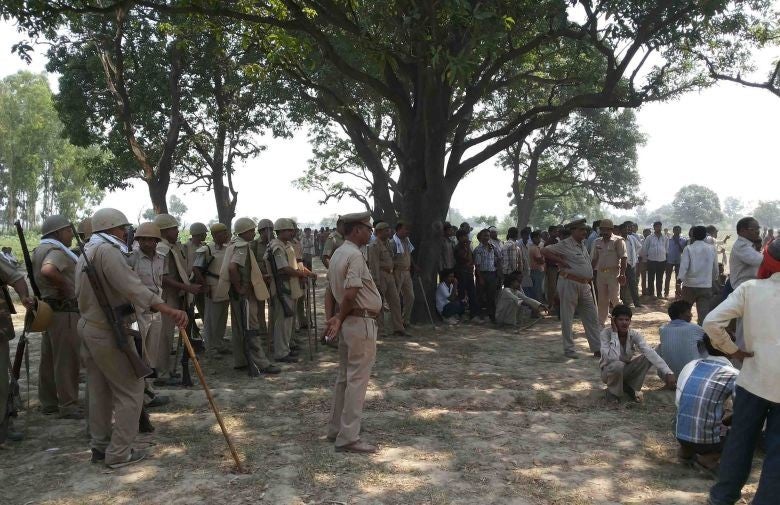India mango tree rape case: Cousins found hanging 'committed suicide' and were not 'sexually assaulted' claim Indian authorities
Controversial CBI head Ranjit Sinha said two teenage girls, Murti and Pushpa, were 'not murdered'
The Indian Central Bureau of Investigation has claimed the two teenage girls discovered hanging from a mango tree in a case that shocked the world “committed suicide” and were not murdered.
Results from the CBI’s five-month probe also claimed that the cousins were not attacked and gang-raped as has previously been supposed.
“Yes, we have cracked the Badaun case. Our probe found that the two girls had committed suicide and weren’t murdered,” CBI director Ranjit Sinha told the Hinustani Times.
The investigation also claims the girls had not been “sexually assaulted or raped”, according to the Centre for DNA Fingerprinting and Diagnostics (CDFD) in Hyderabad - a verdict that was confirmed by a medical board.
Murti and Pushpa, aged 14 and 15 respectively, left their home in Uttar Pradesh, northern India, on 27 May to relieve themselves in a nearby field. Their bodies were later found swinging from a mango tree after villagers refused to cut them down until police investigated.
It was widely believed that the two girls had been attacked and gang-raped while out in the field.
The case attracted massive international coverage, once again shining a light on the treatment of women in India following the brutal Delhi gang-rape and provoking widespread criticism of local police attitudes.

The family of the girls claimed officers initially refused to investigate because of the teenagers’ low caste. They belonged to the Dalit caste, previously known as ‘the untouchables’. After intense media scrutiny and the beginnings of an investigation the family alleged they were being "framed" for the murder of their children.
Mr Sinha continued: “The local police had erroneously conducted their probe along the lines that the sisters were killed”.
A spokesperson for Navsarjan, an organisation who campaign on behalf of Dalits, told The Independent they were "very shocked" at the report, claiming that the CBI is no longer a "credible" agency.
"The state is ruled by Samajvadi party and the accused are from the caste which has political clout at the moment in Uttar Pradesh," they said.
"I am sure that the CBI is protecting the accused and are playing in the hands of the state government and the state police. An independent agency needs to be given charge to do reinvestigation."
The latest pronouncement goes against the first postmortem, overseen by local police chief Atul Saxena, that stated the girls had been sexually assaulted and were still alive when strung from the tree. Mr Saxena, along with roughly 100 other officers also involved in the case, has since been transferred and suspended.
The CBI, who took over the investigation in June, also ruled out the involvement of five men who were arrested by local police in November. Three brothers, from prominent Yadav caste, confessed to the killing in June this year.
A senior CBI officer said the girls killed themselves because of family disapproval after one of them struck up a friendship with another villager.
In July the CBI released information that claimed one of the victims had rung one of the previous suspects 300 times in the year leading up to her death.
Mr Sinha declined to comment on whether the family was now under investigation for the girls’ death, reiterating: “The girls had committed suicide. I don’t want to say anything at this juncture.”

Furthermore, the CBI is claiming that the chief witness, Nazru, a distant relative of the girls, faked details to frame the five accused men. The centre based its evidence on lie-detection tests and its field investigations.
“Nazru as well as three relatives of the girls admitted during the polygraph tests that he has lied to the local police,” the CBI officer said.
The relative apparently claimed he had seen the chief suspect, Pappu, along with three others drag away the two cousins. “It was a lie,” the officer claimed.
He said Nazru accosted Pappu, who had met the two girls on the evening they died, before going to the girls’ home to complain. The two teenagers headed for the field, where they were later discovered.

In June Pushpa’s father told the Daily Mail: “At the police station, the first thing they asked is what caste we came from. And when we told them we were Dalits, they didn't entertain our complaints.”
The family also claimed that the local force were attempting to "frame" them for the murder of their children.
Join our commenting forum
Join thought-provoking conversations, follow other Independent readers and see their replies
Comments